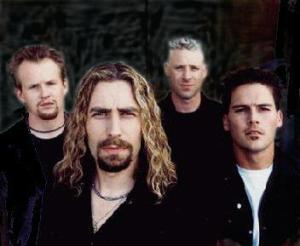If you spend any time at all listening to apologists for the music industry, you will hear (over and over again) two primary justifications for its existence: i) that they find and nurture talent and ii) that it’s the only way for artists to reach the top tier of music stardom.
So, here are some of the top-selling female artists:
And here are some of the top male artists:
Notice anything?
It’s abundantly clear what the critical criterion is for female super-stardom. And just as clear that the same criterion is not applied to men. The music industry might like to think of itself as nurturing talent, but in reality, it’s a gatekeeper – among other criteria, it keeps women (but not men) who aren’t in the 99th percentile of attractiveness, and willing to exploit it as much as they can, out of the Top 40.
This asymmetry between men and women can be traced to the launch of MTV in 1981 and the rise of visual culture in music. Think about female musicians in the 1960s and 1970s – Joan Baez, Janis Joplin, Carole King – all attractive, certainly, but there wasn’t the marked differential between male and female musicians that is on display in the images above. I mark the start of the double standard for male and female artists—and therefore the start of the ‘lost generation’ of female artists—with the band Yazoo (Yaz in the United States). Yazoo featured Alison Moyet’s fantastic singing backed with songwriting by Vince Clarke (formerly of Depeche Mode, and who later founded Erasure). They released two brilliant albums in 1981 and 1982 before disbanding: Upstairs at Eric’s and You and Me Both, which hit #2 and #1 in the UK, respectively, but barely cracked the top 100 in the US. (You and Me Both eventually went platinum in the US, seven years after its release.) Here’s a promo video that their UK label, Mute, released for Yazoo’s first single, “Only You.”
It’s plausible that Yaz’s relative lack of success in the US stemmed from Alison Moyet not conforming to ideals of female beauty at the exact moment (within a year of MTV’s launch) when the music industry decided it mattered.
One of the reasons why I’m excited about the increasing ability of musicians to interact directly with their fans is because it heralds the end of this type of gatekeeping for female artists. Perhaps optimistically, I think that the event marking the end of the lost generation of female artists is the Belly Incident. Boston artist Amanda Palmer chose to break with her label, Roadrunner Records, and strike out on her own, and a major contributor to that decision was Roadrunner’s insistence that the video for “Leeds United” (at top of post) be re-edited to remove a shot of her bare belly which didn’t conform to their ideals of taut, airbrushed perfection. Palmer’s fans rallied in her defense, posting photographs of their own stomachs in Belly Solidarity, and in the end, the original edit stood.
I’m not arguing that the physical appearance of performers is unimportant—it is, and until our society changes pretty drastically, it will continue to be more important for women than for men. But now that the music industry no longer completely controls the distribution channel for music and who has access to it, people like me and you can hear more music by awesome, creative, challenging, talented, compelling female artists—without requiring them to also look like they’ve stepped out of a record executive’s sexual fantasies.
MP3: Amanda Palmer – Do You Swear To Tell The Truth The Whole Truth And Nothing But The Truth So Help Your Black Ass [why, and buy]










